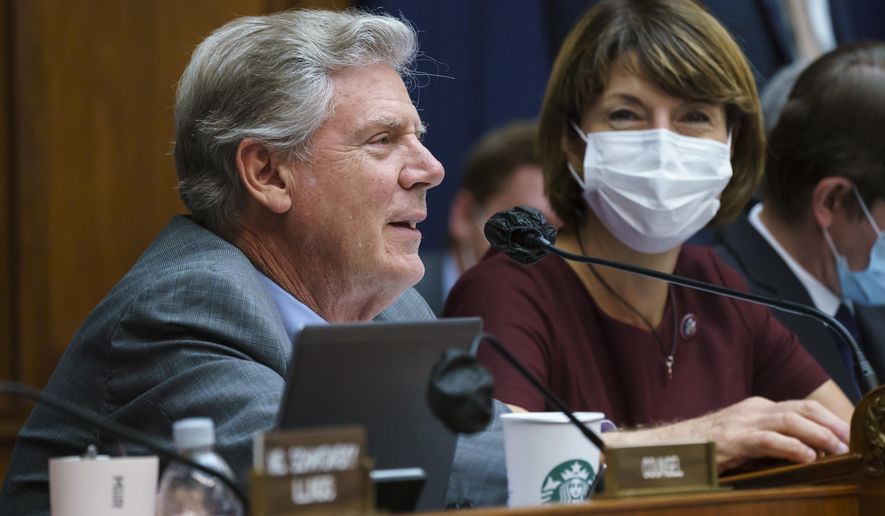House Democrats on Thursday announced new legislation to remove legal liability protections for popular tech platforms that use an algorithm to recommend content that may contribute to real-world harm.
The Justice Against Malicious Algorithms Act would limit liability protections for platforms that knowingly or recklessly made a recommendation of third-party information, according to a draft of the legislation shared by the lawmakers.
“The time for self-regulation is over, and this bill holds them accountable,” said House Energy and Commerce Committee Chairman Frank Pallone, New Jersey Democrat. “Designing personalized algorithms that promote extremism, disinformation, and harmful content is a conscious choice, and platforms should have to answer for it.”
He said social media platforms put profits over people and he thinks the country is paying the price.
The bill would amend Section 230 of the Communications Decency Act, which generally provides website platforms immunity from lawsuits over third-party content.
The bill’s Democratic co-sponsors — Mr. Pallone, Mike Doyle of Pennsylvania, Anna Eshoo of California and Jan Schakowsky of Illinois — said the legislation will be introduced Friday.
Republican lawmakers on the House Energy and Commerce Committee have not taken a position on the Democrats’ proposal and are evaluating it, according to a Republican committee aide.
The draft legislation also includes exemptions for small businesses, which are defined by the tech platform or social media company’s popularity rather than by its number of employees or financial data such as annual revenue figures. In particular, the exemption for small businesses applies to interactive computer services with “5,000,000 or fewer unique monthly visitors or users for not fewer than 3 of the preceding 12 months.”
Popular social media platforms such as Facebook and Twitter tout monthly active users well above the exemption. Facebook said in July that the company averaged 2.9 billion monthly active users as of June 30, 2021, and Twitter said in July it averaged 206 million daily active users.
Several of the co-sponsors explicitly cited Facebook as the target of the legislation. Facebook declined to comment.
Defenders of large tech companies view the Justice Against Malicious Algorithms Act as misguided. The Chamber of Progress, a liberal business-advocacy coalition whose partners include Facebook and other large tech companies, said the bill exacerbates the issue of harmful content spreading online.
“By prohibiting companies from using personal data to recommend relevant content to users, platforms could be forced to rely more heavily on metrics like viral engagement that result in the spread of bad content,” said Adam Kovacevich, Chamber of Progress CEO, in a statement. “That’s a disaster for the newsfeed.”
The forthcoming bill is not the only planned legislation that would crack down on tech companies. Sens. Amy Klobuchar, Minnesota Democrat, and Chuck Grassley, Iowa Republican, are set to introduce legislation to prevent large technology platforms such as Amazon and Google from favoring their own services in search results on their platforms.
“When dominant tech companies exclude rivals & kill competition, it hurts small business and can increase costs for YOU,” Ms. Klobuchar tweeted. “My new bipartisan legislation with @ChuckGrassley will establish new rules of the road to prevent large companies from boxing out their smaller competitors.”
• Ryan Lovelace can be reached at rlovelace@washingtontimes.com.




Please read our comment policy before commenting.